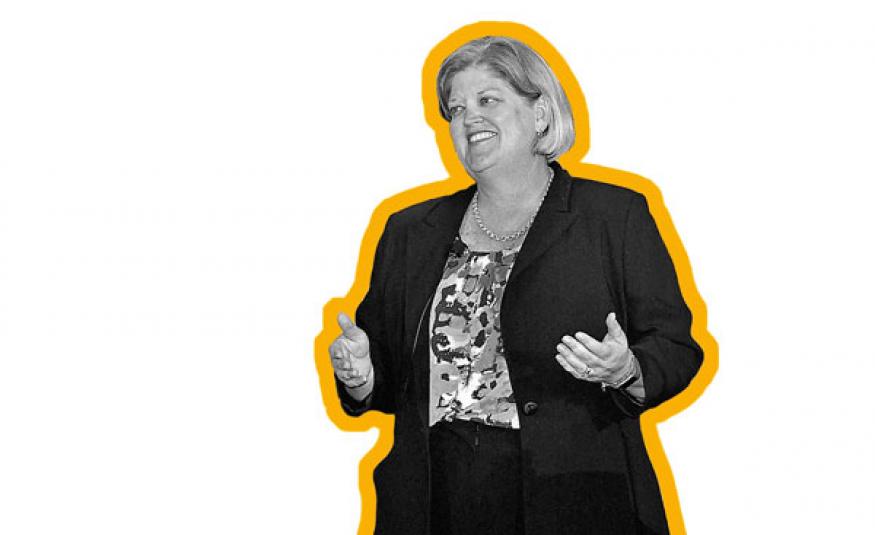The collapse of its signature event presented unseen opportunities for one of the US’s most international associations. Antony Reeve-Crook investigates.
When the National Cable Television Association announced plans to ‘sunset’ its annual Internet and Television Expo (INTX) trade show in 2016, the term couldn’t have been more appropriate. The association was about to retire a 65-year-old event titled the Cable Show that it had dressed up and presented to a slightly wider only two years before.
The reason for this, as is the case with so many shows in an increasingly globalized economy, was due to market consolidation.Once a must-attend event for cable TV executives, its decline can be laid at the feet of companies such as Comcast, AT&T/DirecTV and Charter Communications, which today comprise the majority of the market. Pay-TV subscribers and programmers simply had less need for in-person trade shows to negotiate deals.
According to NCTA president and CEO Michael Powell, the association believed the time for trade shows was behind us, seeking instead to reflect “dramatic changes underway in the marketplace, in technology, in the way consumers access their digital life and in the products and services our industry delivers”.
So when the US-based Food Marketing Institute (FMI) retired its own large and venerable Chicago tradeshow FMI Connect in late 2016 due to an irreversible decline in visitor numbers, occurring again as a result of consolidation in the marketplace, the trade press in America began pouring doubt on the efficacy of live business events.
When Margaret Core, VP of marketing and industry events at FMI, arrived in October of 2014, tasked with redirecting strategy for the 86-year-old event, she was to some extent fighting for the reputation of tradeshows as a mean of doing business.
The question was, in the wake of the closure of FMI Connect, could its legacy be continued simply by giving its audience an opportunity to tap into the same community through different event formats.
Core’s reputation for this was based on tenures at the Consumer Electronics Show, which she contributed to the growth of, and then at the BIO International Convention, where she helped to deliver 25,000 30-minute meetings over the course of the show.
“The branding was right, the events elements were right, the dates were just fine, we just didn't have the density,” she said. “We could sell small booths, and the big booths were gone, it's just the buying teams were consolidating. And they weren't using the show as a buying show.
And so it was that after the June 2016 event, after the FMI's board of directors backed a new strategic approach while the show was still in the black, the motion was unanimously passed to retire the event.
“We crafted our retirement message, focusing on the fact that we believe in live events, but had fallen short with this precise formula of an event, and that we were going to be bold and nimble in what we do next,” Core said.
The focus soon switched to the portfolio of 15 smaller events run by the FMI at the time of FMI Connect's retirement.
“What was working for us was the small events that were specific towards professional titles. Events like the Meat Conference which we had in partnership with the meat association.
Core set about refreshing these events in an attempt to ameliorate the loss of the mothership. “We had a couple of executive events, like the retail 20/20, the imperatives. We instituted a sort of think-tank event – Fresh Forward - that will happen in September this year in a really cool space in Chicago.”
FMI also held a banquet at our signature event, the FMI Midwinter Executive Conference; a 1100 pax C-suite resort-based event at which executives hold planning meetings with their major trading partners.
Here the stage was now given to major speakers, such as European retailer Ocado in January 2018 which Core claims led to an exclusive representation contract with US grocery giant Kroger. “We felt like we had a platform that could make that interaction,” she said. “We always wanted to be ahead of the conversation so we just wanted to make sure those conversations were in the right environment.”
In May the FMI followed this revitalisation of what she calls “the low-hanging fruit” with FMI Emerge, an online community.
“We made a start-up plan within the association. Small manufacturers face a challenge to make it into the grocery environment, and to stay on the shelves in a healthy trading partner relationship.
Education, mentoring, communication, networking, investor connections and product discovery were matters of foremost concern to those smaller companies who had previously used the booths at FMI Connect to reach the bigger buyers.
“It's really very different for us but it was very important to make sure that this community had a healthy environment in which our retailers could find them.
Time will tell if this online initiative effectively serves FMI's community, but in the space of FMI Connect's retirement, revisiting the format and role of targeted and specialist MICE events has ensured the association continues to serve its members.
Margaret Core was speaking with FMI senior VP Mark W Baum at ECEF 2018 in Washington DC on 30 May.






